Trading volumes in India’s futures and options market could see a significant decrease due to new regulations from the market regulator aimed at reducing excessive trading. Sources indicate that volumes may drop by as much as 50%, and around 50–60% of traders might leave the market because of higher contract sizes.
The National Stock Exchange has not yet determined which benchmark it will use for weekly expirations. If trading volumes in derivatives remain the same, the Securities and Exchange Board of India may take further actions.
These new regulations could lead to an overall drop in trading volumes of about 30–35%, mainly affecting smaller retail investors. A reduction in weekly index derivative expirations might result in a volume decrease of around 60% on India’s largest stock exchange.
Additionally, the average transaction costs are expected to increase by about 30% due to new taxes and fees that took effect on October 1. The average open interest may also fall, with estimates ranging from a 35% to 45% decrease.
Furthermore, in fiscal 2025, the average trade size in futures and options could rise significantly, increasing from Rs 5,550 to Rs 20,000.
SEBI has introduced stricter rules for Futures and Options (F&O) trading to help protect small investors from significant losses. These new rules will be implemented in phases, starting November 20.
According to SEBI’s new circular, the minimum contract size for F&O trading will now range from ₹15 lakh to ₹20 lakh, increasing from the current ₹5 lakh to ₹10 lakh. This means traders will need more capital to trade and will be able to handle fewer lots. Starting April 1, 2025, there will also be limits on intraday positions.
From February 1, 2025, options buyers must pay the full premium upfront, whereas currently, only the options seller is required to pay upfront. This change will prevent smaller traders from making large bets in the options market, and the advantage of calendar spreads will also end on this date.
Starting November 20, SEBI will allow only one weekly expiry per exchange. This means the NSE must choose either Nifty or Bank Nifty for weekly expiries. However, SEBI has not yet decided on any changes to strike prices, despite experts suggesting that limits should be set.
The new minimum contract size will be ₹15 lakh, with a maximum of ₹20 lakh, applying to all new contracts beginning November 20, 2024.
According to Jefferies, SEBI’s latest circular is similar to an earlier discussion paper and affects about 35% of Indian premiums. The changes will be implemented in phases over the next 3 to 6 months, which is expected to gradually tighten the market.
One major change from the previous proposal is that the increase in expiry day margins will be limited to 2%. After these changes, the focus will shift to how participants behave in the market. Discount brokers are expected to be the most impacted, followed by exchanges like BSE, according to Jefferies.
The anticipated decline in futures and options (F&O) volumes has been adjusted to 25%, down from the previous estimate of 30%, as the new regulations are less severe than initially thought. As a result, Investec has raised its FY26 earnings per share (EPS) estimate to Rs 149 and increased the target multiple to 20x.
Retail-focused discount brokers in India are expected to be hit hardest by the market regulator’s new curbs on rising derivatives volumes, according to analysts. Jefferies predicts a varied impact, with discount brokers facing the most pressure, followed by exchanges like BSE Ltd., while traditional brokers may experience a smaller effect due to support from high-net-worth clients.
Clearing members like Nuvama Asset Services, catering to institutional clients, will see minimal impact. Citi Research also expects transactional players, including brokers and exchanges, to feel the effects of these changes.
Shares of several brokerage firms fell by up to 3% after the market regulator, SEBI, announced new measures to strengthen the index derivative framework. These measures aim to protect investors and improve market stability, including changing expirations to a weekly basis.
Update
Nifty 50 companies lost over ₹4.09 lakh crore in market capitalization following SEBI’s restrictions on futures and options trading, along with rising geopolitical tensions in the Middle East. Nifty 50 index dropped 2.20% to 25,230, while the Sensex fell 2.17% to 82,434. Safe-haven assets like US Treasury yields and the dollar surged, further pressuring emerging market stocks.
Bringing you the latest updates on finance, economies, stocks, bonds, and more. Stay informed with timely insights.










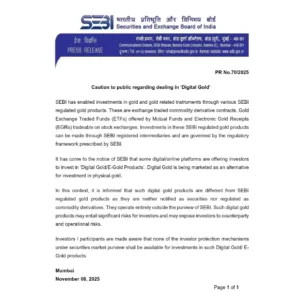

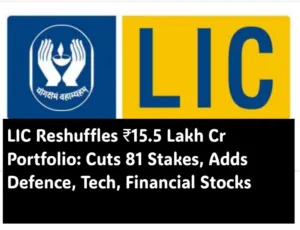


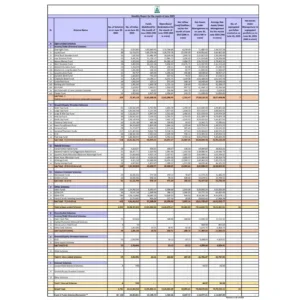



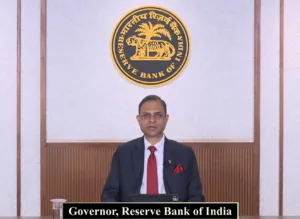


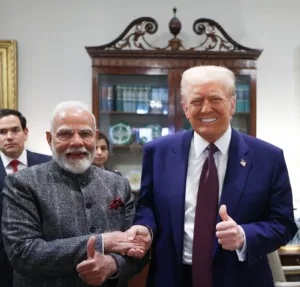

Be First to Comment